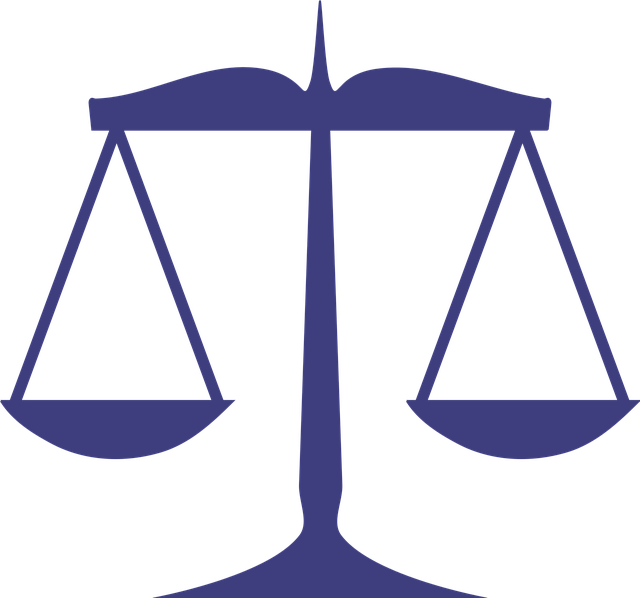Securities law violations, like insider trading and fraud, require sophisticated litigation strategies. Legal professionals must combine financial expertise with strategic maneuvering to defend against these offenses. This involves meticulous document review, expert witness preparation, and crafting compelling narratives. Criminal law enforcement plays a crucial role in investigating and prosecuting these cases using advanced technologies and forensic accounting. Post-trial proceedings and appeals are vital for ensuring fair justice, with skilled attorneys challenging verdicts and business practices to achieve just outcomes. Litigation Strategies for Securities Law Violations are essential for upholding market integrity and holding perpetrators accountable.
“Criminal law enforcement plays a pivotal role in maintaining integrity within the financial markets, especially in the realm of securities law. This comprehensive guide delves into the intricate world of securities fraud investigations and prosecutions. We explore fundamental concepts, including understanding common violations, and delve into strategic aspects such as effective litigation techniques for proving these violations.
Furthermore, it examines defense strategies and the post-trial landscape, ensuring a balanced approach to justice. By mastering these litigation strategies for securities law violations, legal professionals can navigate complex cases, safeguard client rights, and contribute to fair market practices.”
- Understanding Securities Law and Common Violations
- The Role of Criminal Law Enforcement in Securities Fraud Cases
- Litigation Strategies for Proving Securities Law Violations
- Defending Against Charges: Legal Arguments and Defense Techniques
- Post-Trial Proceedings and Appeals: Ensuring Fair Justice
Understanding Securities Law and Common Violations

Securities law is a complex web of regulations designed to protect investors and maintain fair markets. Understanding these laws is crucial for any professional involved in financial sectors, as violations can lead to severe legal consequences. Common securities law violations include insider trading, fraud, and failure to disclose material information. These offenses can be particularly challenging to defend against due to the intricate nature of financial transactions and the potential for misleading conduct.
Litigation strategies for addressing these violations must be tailored to each specific case. Jurors in jury trials often face the task of interpreting complex financial data and deciding on liability, which makes a compelling legal argument even more vital. Successful defense strategies involve meticulous examination of evidence, challenging witness testimonies, and employing expert witnesses to provide clarity on industry standards and practices. Ultimately, navigating these cases requires a deep understanding of both the respective business and the nuances of securities law to achieve winning challenging defense verdicts.
The Role of Criminal Law Enforcement in Securities Fraud Cases

Criminal law enforcement plays a pivotal role in addressing securities fraud cases, which have become increasingly sophisticated and widespread. These cases often involve complex financial schemes and require a meticulous approach to uncover illegal activities and hold perpetrators accountable. Law enforcement agencies, in collaboration with regulatory bodies, employ various litigation strategies for securities law violations.
The investigative process involves sifting through vast amounts of data, documents, and financial records to identify patterns of fraud. By utilizing modern technologies and forensic accounting techniques, investigators can navigate the labyrinthine trails left by fraudulent activities. Effective strategies include gathering evidence at all stages of the investigative and enforcement process, from initial suspicion to avoiding indictment while still achieving extraordinary results. This meticulous approach ensures that justice is served without compromising the integrity of the legal process.
Litigation Strategies for Proving Securities Law Violations

In the realm of Litigation Strategies for Securities Law Violations, the approach to proving these intricate violations is a delicate balance between legal acumen and strategic manoeuvring. Attorneys representing plaintiffs or regulatory bodies must navigate complex financial transactions, interpret regulatory frameworks, and present compelling evidence to establish liability. This involves meticulous document review, expert witness preparation, and creating a clear narrative that illustrates the defendant’s breach of duty or fraudulent conduct.
For his clients, achieving extraordinary results often hinges on uncovering key pieces of evidence, such as internal communications, financial records, or expert opinions that expose misconduct. By employing these litigation strategies, legal professionals can not only hold wrongdoers accountable but also send a strong message to the respective business community, deterring future violations and ensuring market integrity.
Defending Against Charges: Legal Arguments and Defense Techniques

In the face of criminal charges, mastering litigation strategies for securities law violations is paramount for a successful defense. One of the primary tools at the disposal of general criminal defense attorneys is legal argumentation. This involves scrutinizing the prosecution’s evidence and identifying weaknesses or procedural errors that can be leveraged in court. Well-crafted arguments can challenge the admissibility of evidence, question the credibility of witnesses, or exploit ambiguities in the law itself.
Defense techniques also encompass strategic maneuvers such as negotiating plea bargains, which can significantly mitigate penalties for high-stakes cases across the country. By employing these tactics, legal professionals aim to protect their clients’ rights and achieve favorable outcomes, even in complex general criminal defense scenarios.
Post-Trial Proceedings and Appeals: Ensuring Fair Justice

Post-trial proceedings and appeals play a pivotal role in ensuring fair justice within the criminal law enforcement system. After a verdict is delivered, both prosecution and defense teams have specific litigation strategies to employ, especially when dealing with complex cases like white-collar and economic crimes. These processes are crucial for upholding the integrity of the legal system and delivering just outcomes.
For securities law violations, skilled attorneys often utilize intricate litigation strategies to navigate through appeals. By carefully examining the respective business practices and evidence presented during trial, they aim to construct compelling arguments to challenge unfavourable verdicts. This meticulous approach can lead to winning challenging defense verdicts and ensuring that justice is served fairly and accurately.
Criminal law enforcement plays a pivotal role in securing justice within the realm of securities law. By understanding common violations, such as fraud, and employing effective litigation strategies, prosecutors can navigate complex cases. These strategies ensure that accused individuals face fair trials, while post-trial proceedings aim to uphold the integrity of the legal system. In summary, a comprehensive approach, combining enforcement, legal arguments, and robust appeals processes, is essential to address securities law violations effectively.






